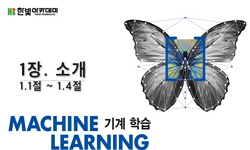컴퓨터와 인간은 분명 다르지만 기본적으로 데이터를 저장하고 처리하는 개념적 측면에서는 서로 유사한 구조를 갖는다. 하지만 수집된 전체 데이터를 처리하고 분석하는 컴퓨터와는 달리 ...
http://chineseinput.net/에서 pinyin(병음)방식으로 중국어를 변환할 수 있습니다.
변환된 중국어를 복사하여 사용하시면 됩니다.
- 中文 을 입력하시려면 zhongwen을 입력하시고 space를누르시면됩니다.
- 北京 을 입력하시려면 beijing을 입력하시고 space를 누르시면 됩니다.
https://www.riss.kr/link?id=A103543052
- 저자
- 발행기관
- 학술지명
- 권호사항
-
발행연도
2017
-
작성언어
Korean
- 주제어
-
등재정보
KCI등재
-
자료형태
학술저널
- 발행기관 URL
-
수록면
388-394(7쪽)
-
KCI 피인용횟수
2
- 제공처
- 소장기관
-
0
상세조회 -
0
다운로드
부가정보
국문 초록 (Abstract)
컴퓨터와 인간은 분명 다르지만 기본적으로 데이터를 저장하고 처리하는 개념적 측면에서는 서로 유사한 구조를 갖는다. 하지만 수집된 전체 데이터를 처리하고 분석하는 컴퓨터와는 달리 인간은 요약된 패턴 단위로 데이터를 처리한다. 즉 인간은 전체 데이터를 다루기보다는 요약된 정보를 통해 최적의 의사결정을 한다. 전체 데이터보다 요약된 정보만을 관리하면 시간과 비용 면에서 더 효율적인 시스템을 구축할 수 있다. 특히 빅데이터 환경에서 인공지능의 학습을 위한 대용량 데이터의 처리 및 분석을 위하여 요약된 정보에 기반 한 데이터학습에 대한 필요성이 제기되고 있다. 본 연구에서는 이와 같이 요약된 정보에 기반 한 심볼릭 인공지능 시스템의 효율적인 구축을 위하여 통계학의 심볼릭 데이터분석에 대하여 연구한다. 특히 대표적인 데이터언어인 R에서 제공하는 심볼릭 데이터분석 함수를 이용한 심볼릭 인공지능에 대한 방법을 소개한다. 제안방법의 성능평가를 위하여 객관적인 기계학습 데이터 사례를 이용하였다.
다국어 초록 (Multilingual Abstract)
Computers and humans are different, but basically they have a similar structure in conceptual aspects of data storing and processing. However, unlike computers that process and analyze the entire data collected, humans process the data in a summarized...
Computers and humans are different, but basically they have a similar structure in conceptual aspects of data storing and processing. However, unlike computers that process and analyze the entire data collected, humans process the data in a summarized pattern. In other words, humans make the best decisions through summarized information rather than whole data. By managing only summarized information, you can build a more efficient system in terms of time and cost. In particular, there is a need for learning from data based on summarized information for processing and analyzing large amounts of data for artificial intelligence learning in a big data environment. In this paper, symbolic data analysis of statistics is studied for efficient construction of symbolic artificial intelligence system based on the information summarized in this way. We introduce a method for symbolic artificial intelligence using symbolic data analysis functions provided by R data language. In order to evaluate the performance of proposed method, objective machine learning data were used.
목차 (Table of Contents)
- 요약
- Abstract
- 1. 서론
- 2. 심볼릭 인공지능
- 3. R을 이용한 심볼릭 인공지능
- 요약
- Abstract
- 1. 서론
- 2. 심볼릭 인공지능
- 3. R을 이용한 심볼릭 인공지능
- 4. 실험 및 결과
- 5. 결론 및 향후 연구
- References
참고문헌 (Reference)
1 김동연, "풍속 예측을 위한 선형회귀분석과 비선형회귀분석 기법의 비교 및 인자분석" 한국지능시스템학회 25 (25): 477-482, 2015
2 노석범, "영상 분할을 위한 Context Fuzzy c-Means 알고리즘을 이용한 공간 분할" 한국지능시스템학회 20 (20): 368-374, 2010
3 김재광, "시간 가중치와 가변형 -means 기법을 이용한 개인화된 음악 추천 시스템" 한국지능시스템학회 19 (19): 504-510, 2009
4 오승준, "비대칭적 유사도 기반의 심볼릭 객체의 계층적 클러스터링" 한국지능시스템학회 22 (22): 729-734, 2012
5 UCI ML Repository, "The UC Irvine Machine Learning Repository"
6 Xu, W, "Symbolic data analysis: interval-valued data regression" University of Georgia 2010
7 Doux, A. C, "Symbolic data analysis with the K-means algorithm for user profiling" Springer, Vienna 359-361, 1997
8 Billard, L, "Symbolic Data Analysis: Conceptual Statistics and Data Mining" John Wiley & Sons Ltd 2006
9 R Development Core Team, "R: A language and environment for statistical computing, R Foundation for Statistical Computing"
10 Akritas, M, "Probability and Statistics with R for Engineers and Scientists" Pearson 2016
1 김동연, "풍속 예측을 위한 선형회귀분석과 비선형회귀분석 기법의 비교 및 인자분석" 한국지능시스템학회 25 (25): 477-482, 2015
2 노석범, "영상 분할을 위한 Context Fuzzy c-Means 알고리즘을 이용한 공간 분할" 한국지능시스템학회 20 (20): 368-374, 2010
3 김재광, "시간 가중치와 가변형 -means 기법을 이용한 개인화된 음악 추천 시스템" 한국지능시스템학회 19 (19): 504-510, 2009
4 오승준, "비대칭적 유사도 기반의 심볼릭 객체의 계층적 클러스터링" 한국지능시스템학회 22 (22): 729-734, 2012
5 UCI ML Repository, "The UC Irvine Machine Learning Repository"
6 Xu, W, "Symbolic data analysis: interval-valued data regression" University of Georgia 2010
7 Doux, A. C, "Symbolic data analysis with the K-means algorithm for user profiling" Springer, Vienna 359-361, 1997
8 Billard, L, "Symbolic Data Analysis: Conceptual Statistics and Data Mining" John Wiley & Sons Ltd 2006
9 R Development Core Team, "R: A language and environment for statistical computing, R Foundation for Statistical Computing"
10 Akritas, M, "Probability and Statistics with R for Engineers and Scientists" Pearson 2016
11 Rodriguez, "O. R to Symbolic Data Analysis - Package ‘RSDA’"
12 Mitchell, T, "Machine Learning" McGraw-Hill 1997
13 Diday, E, "Introduction àl'approche symbolique en analyse des données" 23 (23): 193-236, 1989
14 Ross, S. M, "Introduction to Probability and Statistics for Engineers and Scientists" Elsevier 2012
15 Flasiński, M, "Introduction to Artificial Intelligence" Springer 15-22, 2016
16 Billard, L, "From the statistics of data to the statistics of knowledge: symbolic data analysis" 98 (98): 470-487, 2003
17 전성해, "Frequentist and Bayesian Learning Approaches to Artificial Intelligence" 한국지능시스템학회 16 (16): 111-118, 2016
18 LeCun, Y, "Deep learning" 521 (521): 436-444, 2015
19 Han, J, "Data Mining: Concepts and Techniques" Morgan Kaufmann 2012
20 Billard, L, "Data Analysis, Classification, and Related Methods" Springer 369-374, 2000
21 Russell, S, "Artificial Intelligence: A Modern Approach" Pearson 2014
22 De Carvalho, F. D. A, "Adaptive Hausdorff distances and dynamic clustering of symbolic interval data" 27 (27): 167-179, 2006
동일학술지(권/호) 다른 논문
-
가우시안 분포 기반 제어 함수와 영상 밝기 정보를 이용한 명도 보정 기법
- 한국지능시스템학회
- 김은경(Eun Kyeong Kim)
- 2017
- KCI등재
-
웨어러블 센서와 커널 기법을 이용한 낙상 탐지에 관한 고찰
- 한국지능시스템학회
- 허성만(Seongman Heo)
- 2017
- KCI등재
-
- 한국지능시스템학회
- 미아오쉬(Xu Miao)
- 2017
- KCI등재
-
패킷 손실을 갖는 이산시간 상호결합 시스템을 위한 분산 관측기 설계
- 한국지능시스템학회
- 구근범(Geun Bum Koo)
- 2017
- KCI등재
분석정보
인용정보 인용지수 설명보기
학술지 이력
| 연월일 | 이력구분 | 이력상세 | 등재구분 |
|---|---|---|---|
| 2023 | 평가예정 | 재인증평가 신청대상 (재인증) | |
| 2020-01-01 | 평가 | 등재학술지 선정 (재인증) |  |
| 2019-12-01 | 평가 | 등재후보로 하락 (계속평가) |  |
| 2016-01-01 | 평가 | 등재학술지 선정 (계속평가) |  |
| 2015-12-01 | 평가 | 등재후보로 하락 (기타) |  |
| 2011-01-01 | 평가 | 등재학술지 유지 (등재유지) |  |
| 2009-01-01 | 평가 | 등재학술지 유지 (등재유지) |  |
| 2008-02-20 | 학술지명변경 | 한글명 : 한국퍼지및지능시스템학회 논문지 -> 한국지능시스템학회 논문지외국어명 : 미등록 -> Journal of Korean Institute of Intelligent Systems |  |
| 2008-02-18 | 학회명변경 | 한글명 : 한국퍼지및지능시스템학회 -> 한국지능시스템학회영문명 : Korea Fuzzy Logic And Intelligent Systems Society -> Korean Institute of Intelligent Systems |  |
| 2007-01-01 | 평가 | 등재학술지 유지 (등재유지) |  |
| 2005-01-01 | 평가 | 등재학술지 유지 (등재유지) |  |
| 2002-01-01 | 평가 | 등재학술지 선정 (등재후보2차) |  |
| 1999-07-01 | 평가 | 등재후보학술지 선정 (신규평가) |  |
학술지 인용정보
| 기준연도 | WOS-KCI 통합IF(2년) | KCIF(2년) | KCIF(3년) |
|---|---|---|---|
| 2016 | 0.62 | 0.62 | 0.63 |
| KCIF(4년) | KCIF(5년) | 중심성지수(3년) | 즉시성지수 |
| 0.56 | 0.49 | 0.866 | 0.2 |





 ScienceON
ScienceON DBpia
DBpia







